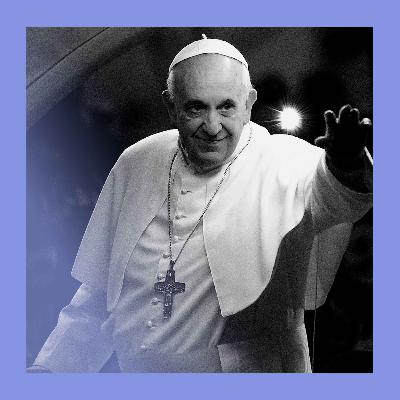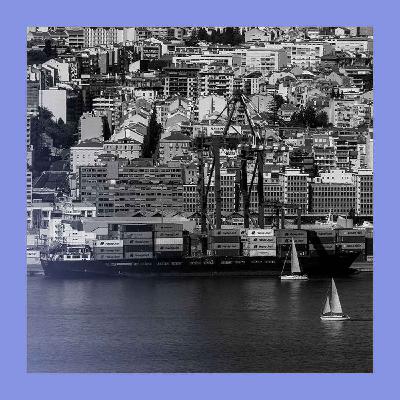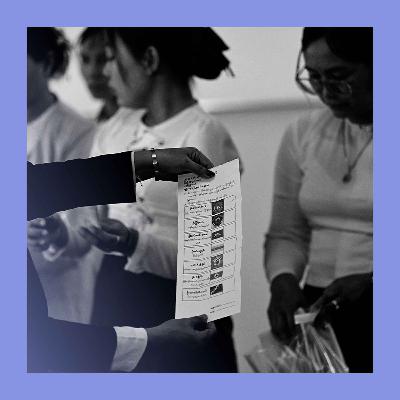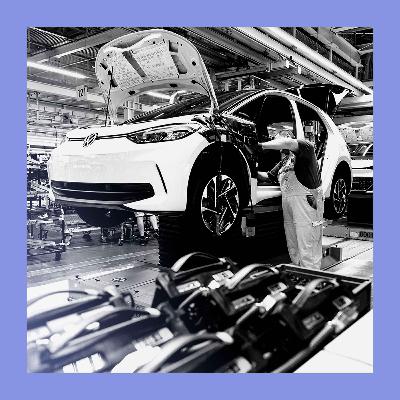Discover Economist Podcasts
Economist Podcasts

Economist Podcasts
Author: The Economist
Subscribed: 283,865Played: 20,733,814Subscribe
Share
Copyright © The Economist Newspaper Limited 2023. All rights reserved.
Description
Every weekday our global network of correspondents makes sense of the stories beneath the headlines. We bring you surprising trends and tales from around the world, current affairs, business and finance — as well as science and technology.
Hosted on Acast. See acast.com/privacy for more information.
1898 Episodes
Reverse
The picturesque town of Corning in upstate New York doesn’t look like the site of bleeding-edge innovation. But inventions by a 174-year-old glass company there have changed the modern world, thanks in part to some blunt advice from Steve Jobs. To listen to the full series, subscribe to Economist Podcasts+. https://subscribenow.economist.com/podcasts-plusIf you’re already a subscriber to The Economist, you have full access to all our shows as part of your subscription. For more information about how to access Economist Podcasts+, please visit our FAQs page or watch our video explaining how to link your account. Hosted on Acast. See acast.com/privacy for more information.
For Season 2, we’re releasing an extended interview alongside each episode. This week: Who needs search engines when chatbots can answer every query for you? That’s the question confronting the head of Search at the world’s most popular website.To listen to the full series, subscribe to Economist Podcasts+. https://subscribenow.economist.com/podcasts-plusIf you’re already a subscriber to The Economist, you have full access to all our shows as part of your subscription. For more information about how to access Economist Podcasts+, please visit our FAQs page or watch our video explaining how to link your account. Hosted on Acast. See acast.com/privacy for more information.
Forget the hammocks and ping-pong tables. Creativity takes work. Managers at Google, Lego and a pair of AI startups share advice on breaking through.To listen to the full series, subscribe to Economist Podcasts+. https://subscribenow.economist.com/podcasts-plusIf you’re already a subscriber to The Economist, you have full access to all our shows as part of your subscription. For more information about how to access Economist Podcasts+, please visit our FAQs page or watch our video explaining how to link your account. Hosted on Acast. See acast.com/privacy for more information.
Good bosses are rare. They don’t have to be. The skills of management can be learned.The Economist’s management columnist, Andrew Palmer, is here to help. The second season of Boss Class features leaders at some of the world’s best performing companies, from Levi’s to Novo Nordisk to Google. New episodes are out weekly starting May 12th. To listen to the full series, subscribe to Economist Podcasts+.https://subscribenow.economist.com/podcasts-plusIf you’re already a subscriber to The Economist, you have full access to all our shows as part of your subscription. For more information about how to access Economist Podcasts+, please visit our FAQs page or watch our video explaining how to link your account. Hosted on Acast. See acast.com/privacy for more information.
The generation born in the 1940s grew up in a land of endless growth and possibility, ruled by a confident, moderate elite. But just as they were embarking on adult life, all that started to come apart. The economy faltered, and the post-war consensus came under pressure from two sides: from the radical right, who hated government moves on civil rights – and from the ‘New Left’, as boomers rebelled against their parents' generation and its war in Vietnam.To listen to the full series, subscribe to Economist Podcasts+. If you’re already a subscriber to The Economist, you have full access to all our shows as part of your subscription. For more information about how to access Economist Podcasts+, please visit our FAQs page or watch our video explaining how to link your account. Hosted on Acast. See acast.com/privacy for more information.
To manage a workforce divided between the home and office, bosses should ask the five basic questions of journalism: who, what, where, when and why. Jamie Dimon, the CEO of JPMorgan Chase, Jane Sun, the CEO of Trip.com Group, and Lidiane Jones, the CEO of Slack, give their divergent views. To hear the full series, subscribe to Economist Podcasts+.https://subscribenow.economist.com/podcasts-plusIf you’re already a subscriber to The Economist, you have full access to all our shows as part of your subscription. For more information about how to access Economist Podcasts+, please visit our FAQs page or watch our video explaining how to link your account. Hosted on Acast. See acast.com/privacy for more information.
Andrew Palmer, The Economist's Bartleby columnist, learns lessons in management on a Norwegian mountainside. He hears from Emma Walmsley, the CEO of GSK; Daniel Kahneman, a Nobel prize-winning psychologist; and Claire Hughes-Johnson, the one-time COO of Stripe. To hear the full series, subscribe to Economist Podcasts+.https://subscribenow.economist.com/podcasts-plusIf you’re already a subscriber to The Economist, you have full access to all our shows as part of your subscription. For more information about how to access Economist Podcasts+, please visit our FAQs page or watch our video explaining how to link your account. Hosted on Acast. See acast.com/privacy for more information.
The workplace keeps changing and managers have to keep up. The best bosses create systems for solving problems old and new—from navigating working-from-home demands to hiring the right people, from running good meetings to managing themselves. Andrew Palmer, author of the Bartleby column, looks for advice on how to be a better boss by talking to people who have actually done the job. Listen to The Economist's seven-episode guide for managers.Boss Class season one is free for a limited time. Season two will appear weekly starting May 12th. To hear new episodes, subscribe to Economist Podcasts+. https://subscribenow.economist.com/podcasts-plusIf you’re already a subscriber to The Economist, you have full access to all our shows as part of your subscription. For more information about how to access Economist Podcasts+, please visit our FAQs page or watch our video explaining how to link your account. Hosted on Acast. See acast.com/privacy for more information.
The editor of our annual “World Ahead” publication predicts the themes and events that will dominate the headlines in 2026, from geopolitics to tech. He also admits what we got wrong last year. And The Economist launched its first podcast 20 years ago. We chart the evolution of audio, from a basement broom cupboard to today’s bountiful offerings.Listen to what matters most, from global politics and business to science and technology—Subscribe to Economist Podcasts+For more information about how to access Economist Podcasts+, please visit our FAQs page or watch our video explaining how to link your account. Hosted on Acast. See acast.com/privacy for more information.
Today’s show is a tribute to those whose lives we remembered this year. From Pope Francis, the most open-minded pontiff for decades, and controversial vice-president Dick Cheney, to champ of the chimpanzees Jane Goodall, bubblegum pop star Brian Wilson and Alice Tan Ridley, a New York subway busker who became a superstar. Listen to what matters most, from global politics and business to science and technology—Subscribe to Economist Podcasts+For more information about how to access Economist Podcasts+, please visit our FAQs page or watch our video explaining how to link your account. Hosted on Acast. See acast.com/privacy for more information.
Announcing the return of The Economist’s annual ranking for best performing economy. Are you ready for the big reveal? Dalit cuisine is barely visible, in India or beyond. And why London’s river boats are making a comeback. Get a world of insights by subscribing to Economist Podcasts+. For more information about how to access Economist Podcasts+, please visit our FAQs page or watch our video explaining how to link your account. Hosted on Acast. See acast.com/privacy for more information.
Five years after seizing power in a coup, the military junta in Myanmar is holding an election. Yet all credible opposition has been banned. And war has inspired so many films over the past century. Our correspondents battle it out to pick the best one. Listen to what matters most, from global politics and business to science and technology—Subscribe to Economist Podcasts+For more information about how to access Economist Podcasts+, please visit our FAQs page or watch our video explaining how to link your account. Hosted on Acast. See acast.com/privacy for more information.
So many books are published each year; few stand the test of time. Today we devote our whole show to asking which works have shaped the way we behave and how we think. Picks include “Frankenstein” by Mary Shelley, “Pride and Prejudice” by Jane Austen, “A Suitable Boy” by Vikram Seth and “Lord of the Rings” by JRR Tolkien.Full list of books mentioned in the show:The BibleThe Koran“Pride and Prejudice” by Jane Austen “The Hunger Games” by Suzanne Collins“On the Origin of Species” by Charles Darwin“Il Saggiatore” by Galileo Galilei“Two New Sciences” by Galileo Galilei“Capital in the Twenty-First Century” by Thomas Piketty“Amusing Ourselves to Death” by Neil PostmanThe novels of Philip PullmanThe Harry Potter series by J.K. Rowling“The Satanic Verses” by Salman Rushdie“Frankenstein” by Mary Shelley“A Suitable Boy” by Vikram Seth “Lord of the Rings” by J.R.R. Tolkien “A Room of One’s Own” by Virginia Woolf Hosted on Acast. See acast.com/privacy for more information.
Join our editors and correspondents in a gripping test of recall and reflexes. There are questions on business and politics of course—but also news noises to identify, one saucy limerick and quotes from “The Real Housewives” franchise that frankly no one expected. Which team will take the trophy?Get a world of insights by subscribing to Economist Podcasts+. For more information about how to access Economist Podcasts+, please visit our FAQs page or watch our video explaining how to link your account. Hosted on Acast. See acast.com/privacy for more information.
Recessions are, in their way, bad news. But so, paradoxically, is a lasting dearth of them. We explain the dangers that lie beneath the current run of continuous growth. Our correspondent looks into the hidden economics of online reviews, and whether to trust them. And a turkey-industry exposé that you’ll just gobble up. Get a world of insights by subscribing to Economist Podcasts+. For more information about how to access Economist Podcasts+, please visit our FAQs page or watch our video explaining how to link your account. Hosted on Acast. See acast.com/privacy for more information.
In a world of infinite content, who wins and who loses? Our correspondent explains what the proliferation of AI-generated art means for human artists. What the prevalence of male-female friendships tell us about a society. And why you should propose with a yellow-gold ring. Listen to what matters most, from global politics and business to science and technology—Subscribe to Economist Podcasts+For more information about how to access Economist Podcasts+, please visit our FAQs page or watch our video explaining how to link your account. Hosted on Acast. See acast.com/privacy for more information.
Each year, The Economist tries to identify which country has improved the most, whether economically, politically or in other ways. In a turbulent year, the choice was tricky. We unveil the result. And The Economist Educational Foundation helps kids worldwide be more news-savvy. We invite you to donate and support its work: https://economistfoundation.org/donate/.Listen to what matters most, from global politics and business to science and technology—Subscribe to Economist Podcasts+For more information about how to access Economist Podcasts+, please visit our FAQs page or watch our video explaining how to link your account. Hosted on Acast. See acast.com/privacy for more information.
Since Novo Nordisk launched Wegovy in 2021, it has dominated the fast-growing market for slimming drugs. Now a new jab is eating into the Danish firm’s success. Why a slang expert thinks the first word humans ever uttered may have been a profane one. And why British sheep have got happier. Listen to what matters most, from global politics and business to science and technology—Subscribe to Economist Podcasts+For more information about how to access Economist Podcasts+, please visit our FAQs page or watch our video explaining how to link your account. Hosted on Acast. See acast.com/privacy for more information.
The European Union had promised to ban the sale of new diesel and petrol vehicles by 2035, as part of its environmental ambitions. Yesterday it watered down that commitment. Our correspondent explains the implications. Will Donald Trump’s choice of Federal Reserve chair politicise the institution? And The Economist announces its word of the year.Listen to what matters most, from global politics and business to science and technology—Subscribe to Economist Podcasts+For more information about how to access Economist Podcasts+, please visit our FAQs page or watch our video explaining how to link your account. Hosted on Acast. See acast.com/privacy for more information.
As the Australian authorities continue their investigation into Sunday’s deadly attack on a Hannukah party in Sydney, investigators have uncovered a possible link with Islamic State. Our journalists recommend their favourite books of 2025. And why there is now an Advent calendar for everything.Listen to what matters most, from global politics and business to science and technology—Subscribe to Economist Podcasts+For more information about how to access Economist Podcasts+, please visit our FAQs page or watch our video explaining how to link your account. Hosted on Acast. See acast.com/privacy for more information.





























100% agree that this was the best episode. so touching 🫶🫶
This episode was fantastic! Thoroughly enjoyed the animated disagreements.
I dont undrestant i am persion
It is actually crazy how much impact a country as small as Rwanda has over a country as huge as the DRC. It shows you how unstable and basically ungoverned the DRC really is.
miss information giving to world about Iran by demokratic platforms!
الله اکبر
how many people have israel killed in attack to Iran?
negotiagion with trump was scam for cover the israeil attack to Iran.
how can i find the trascript of each podcast?
what a revelation!!
I as an migrant survived in sweden one year, without any support from sweden government!
Someone should remind those in the government where their forefathers came from when they're bashing Europeans, because in extension they bash themselves, but we all know that a lot of folks up there like to pretend that they're native American or something.
Silver will hit $40.60..
Elvira NabiUlina (the head of Russian Central Bank) not Nabulina
Fertility is not just a factor of choice but also ,well, a question of male fertility. Since the male sperm count has halved in the last 30 years due to the effects of phalates derived from plastics (Dr. Swan et al.) no amount of nudging will restore fertility. Say no more!
Today's The Intelligence "US Policy in Middle East" had some troubling words & undertones... words mean something + lay foundations for other things! Choosing the words "Israel is laying waste to Gaza & Lebanon" there's no reference to why.... such as following October 7th or In its war or even in it's attempt to find and capture terrorists .... NO context, so Israel is BAD or the rest "flirting in escalation with Iran" again lack of context such as 200 ballistic missiles, unprovoked attack
a leftist who supports Putin is not a leftist.
it'd sickening and disgusting to hear the host say in the same breath : the worst massacre in Israeli history and disastrous war in Gaza....madam, it was the worst massacre in gaza too. perpetuated by Israeli war criminals
Love this coverage on Ukraine! The florist interview reminds me this young democracy wants to remain a democracy!
awesome